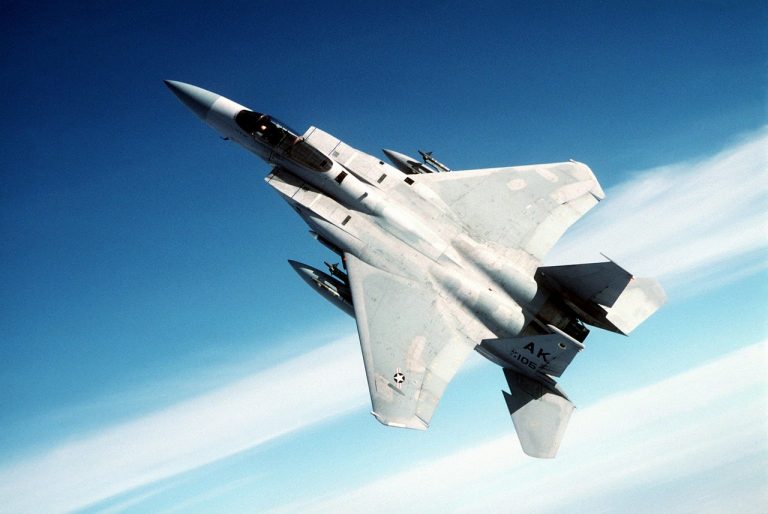Admiral Philip Davidson, the commander of United States Indo-Pacific Command, has warned that the U.S. remains highly vulnerable in the event of a Chinese aerial attack and that its air defense system, THAAD, will be insufficient to protect American interests from Chinese threats.
The admiral said that “Combat-credible deterrence to slow Beijing’s decision-making and convince them that today is not the day” was needed and explained that “Deterrence is only effective if the adversary believes a combat-credible opponent force exists…Deterrence is not a bluff. It is a demonstration of capacity, capability, and will that could deny China’s objectives—and to impose costs on their conventional military forces—should competition come to conflict.”
According to Davidson’s presentation, islands like Guam and Taiwan are in the first potential Chinese aggression zone. However, Washington is presently not in a position to protect them. Plus, China is also developing new weapons systems; this could indicate that China is looking to engage in aggressive maneuvers with foreign powers.

Davidson recently submitted a report for the U.S. Indo-Pacific Command to Congress. He asked Washington to provide funds to the tune of $27 billion over the next six years until 2027, with $4.6 billion earmarked for next year.
The report suggests building a 360-degree persistent and integrated air defense capability (Aegis) to defend Guam at the cost of $1.6 billion and a $3.3 billion long-range, ground-based missile network to protect the First Island Chain. This term describes islands from Japan to Taiwan, Indonesia, and the Philippines. The admiral calls Guam the “strategic heart” of U.S. and U.S. Indo-Pacific defense strategy.
Success
You are now signed up for our newsletter
Success
Check your email to complete sign up
At Guam, which belongs in the Second Island Chain that starts in Japan, the top priority will be to establish an Aegis Ashore system by 2026, a land-based variant of the Navy’s Aegis Weapons System designed to defend against intermediate and medium-range missiles.
“Placing a defense system on Guam does not make Guam a target. It already is one,” explains the admiral, who cited a propaganda video from China explicitly depicting an attack on a mock-up of an airforce base on Guam.
Chinese military advantage
The admiral warned that if China believes it has a military advantage, it will initiate an attack. Beijing is already dealing with Hong Kong, Tibet, and Xinjiang while causing trouble for India at its Northern border. He said that Taiwan and Guam could easily be the next targets, with a potential attack on Taiwan possibly manifesting over the next six years. He asked lawmakers to continue selling weapons to Taiwan.
“The greatest danger the United States and our allies face in this region is the erosion of conventional deterrence vis-à-vis the People’s Republic of China… Absent a convincing deterrent; China will be emboldened to take action to supplant the established rules-based international order and the values represented in our vision for a free and open Indo-Pacific,” Davidson said at an online event hosted by the American Enterprise Institute.
He added that even though America’s number one job is to maintain peace, the country should fight and win any conflict.
Follow us on Twitter or subscribe to our email list
















